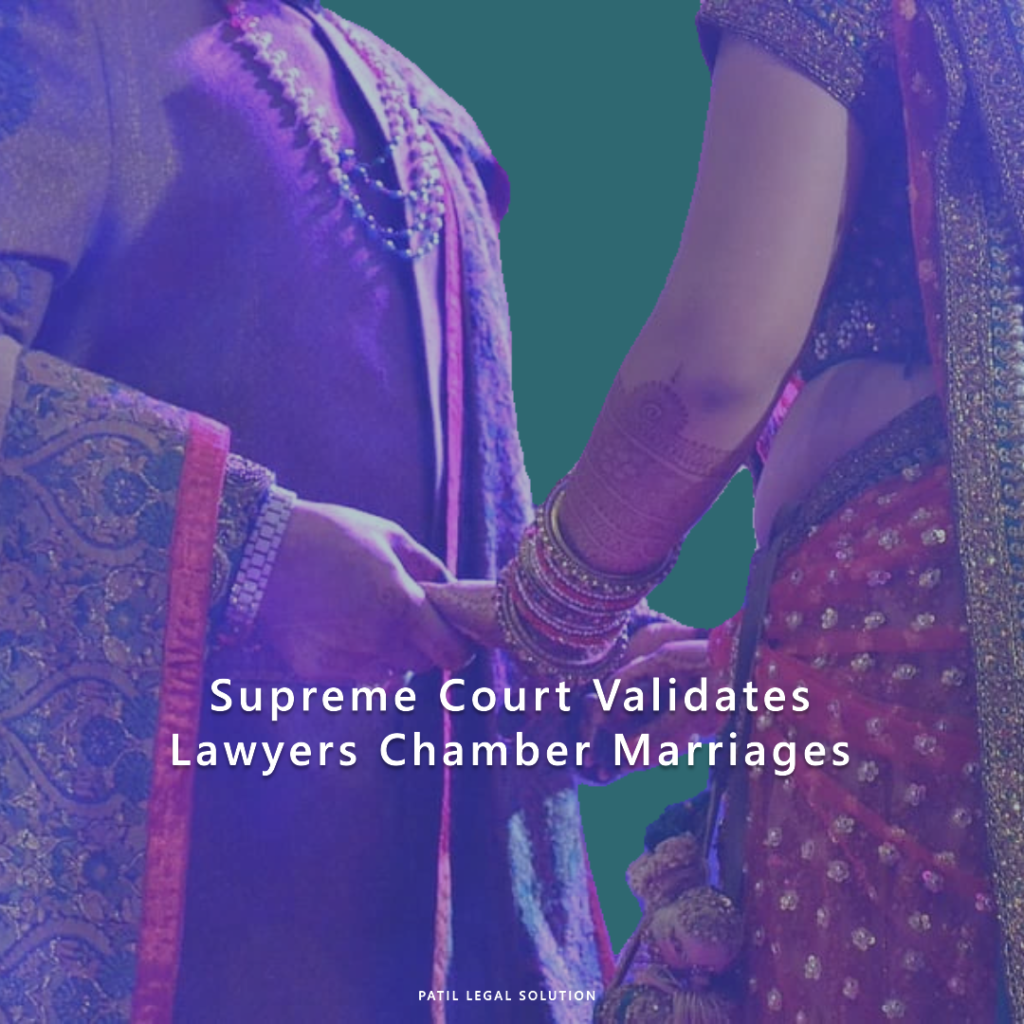
Groundbreaking development, the Supreme Court has redefined the landscape of Hindu marriages in India, overturning the Madras High Court’s judgment. This momentous decision validates Lawyers’ Chamber Marriages, reshaping the interpretation of the Hindu Marriage Act. Importantly, this judgment validates Lawyers’ Chamber Marriages without the need for a priest’s presence.
Background and Context:
Before delving into this groundbreaking ruling, it’s essential to grasp the historical context and evolution of marriage laws in India. The Hindu Marriage Act of 1955 initially emphasized traditional rituals, priests, and elaborate ceremonies. However, as society evolved, so did the ways in which Hindu marriages were solemnized. The recent Supreme Court judgment reflects India’s evolving marriage dynamics, adapting to contemporary norms and preferences.
Supreme Court’s Verdict on Lawyers Chamber Marriages :
Led by Justice S Ravindra Bhat and Aravind Kumar, the Supreme Court has overturned the Madras High Court’s judgment, which questioned the validity of marriages performed in lawyers chambers under Sections 7 and 7-A of the Hindu Marriage Act. In a resounding endorsement of personal freedom and choice, the apex court ruled that lawyers, assuming roles beyond that of court officers, such as friends, relatives, or social activists, can officiate marriages under Section 7(A) of the Act.
Elimination of Priest Requirement:
A pivotal aspect: no priest is mandatory for marriage validity under Section 7-A of the Hindu Marriage Act.
This provision paves the way for the solemnization of marriages between two Hindus in the presence of friends, relatives, or other individuals, emphasizing inclusivity and adaptability.
Acknowledging Alternative Solemnization Methods:
Moreover, the Supreme Court’s decision recognizes various valid solemnization methods under the Hindu Marriage Act. These methods include garlanding each other, exchanging rings, or tying a thali. The court’s ruling underscores the significance of individual consent and commitment over specific rituals or religious officiants, offering couples the liberty to personalize their marriage ceremonies within the bounds of the law.
Overturning Disciplinary Actions in Lawyers Chamber Marriages:
Beyond validating alternative methods of marriage. the Supreme Court’s ruling also quashes disciplinary actions against advocates who facilitated marriages, even those involving minor individuals. This legal protection for advocates acting in capacities other than legal representatives assures a fair and just legal environment.
Public Declaration and Social Recognition:
The Supreme Court’s decision underscores the importance of publicly declaring marital status. It asserts that traditional marriage ceremonies, like Suyammariyathai/Seerthiruththa, were intended to be public events, emphasizing that marriage is not merely a private contract but a social institution deserving recognition beyond the couple.
Broader Implications and Conclusion of Lawyers Chamber Marriages
The Supreme Court’s ruling sets a precedent for a modern, inclusive approach to Hindu marriages in India, with far-reaching implications beyond this case. Couples now have the legal assurance that they can choose how they want to solemnize their marriage, reflecting the country’s diverse traditions and preferences.
In Addition, This landmark judgment aligns with broader discussions about individual rights and personal freedom in India. It reflects the evolving legal landscape and its commitment to adapting to changing societal norms and preferences. In a nation as diverse as India, where customs, traditions vary widely, the flexibility granted by the Supreme Court’s decision is indeed significant.
Conclusion
The Supreme Court’s recent verdict has brought clarity and inclusivity to the Hindu marriage process under the Hindu Marriage Act. It validates marriages conducted in lawyers’ chambers, highlights the importance of public recognition, and embraces flexibility in the solemnization process. As India continues to progress, so do its laws, ensuring that institution of marriage remains accessible and relevant to all. Stay tuned for more updates on legal developments that shape our society and culture.
So, Stay tuned for more updates on legal developments that shape our society and culture.



Leave a Reply